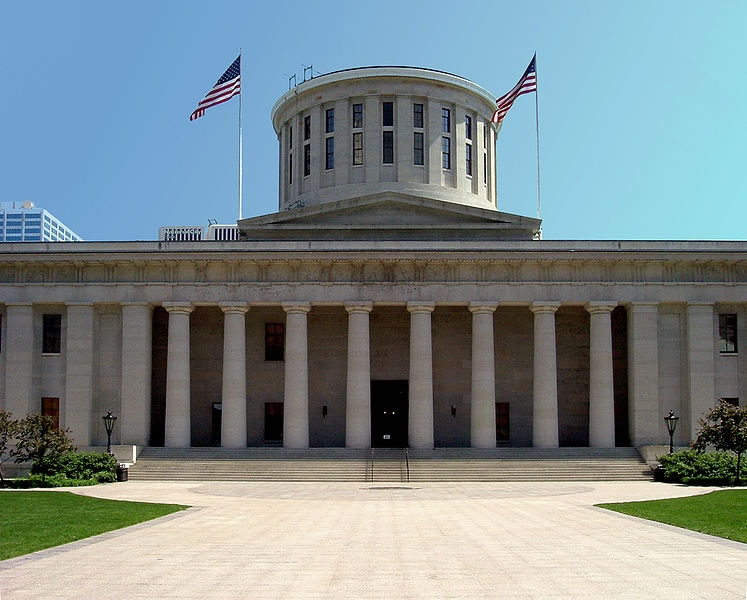'Voters First' Initiative on Redistricting Sends Mixed Signals

Political redistricting is an issue that stirs up partisan bickering like no other. Each side wants to draw up the districts in a way that ensures the best possible scenario for their continued power. The establishment party usually ends up cementing its power by drawing up bizarre districts that ignore geography, demographics, and common sense. The opposition party whines about it, secretly envious of the power. The tired drama was recently repeated in Ohio, where the Republican controlled executive and legislative branches pushed through a hotly contested redistricting. The Cleveland Plain Dealer reported that the new districts will probably result in a Republican majority not indicative of the general population.
"House Bill 369 still represents a sweeping victory for Republicans. In today's politics, there are few sure things. But it is possible, perhaps likely, that next November the GOP will capture 12 of the 16 districts, with just four left to Democrats. That far outstrips Republicans' overall weight in Ohio."
In the aftermath, defeated Democrats and disgruntled Independents complained. A new campaign was launched which would supposedly give the power back to the voters. The "Voters First" initiative intends to set up a citizen commission to undertake redistricting without the political corruption and gerrymandering that has plagued the state. The crusade denounces the status quo with this slogan:
"Instead of voters choosing their politicians, politicians are picking their voters."
If the campaign receives 385,000 signatures by July 3, a constitutional amendment can come before Ohio voters. This campaign has correctly diagnosed the problem. When the ones being elected are allowed to draw up districts, they will do so in a way that favors their interests. Our current system allows the fox to guard the henhouse. The details of the initiative seem reasonable: a twelve person panel, with four Republicans, four Democrats, and four Independents. Seven votes are required before the committee can pass a redistricting plan. Instead of appointing the commission through the legislative branch, an elaborate system involving the judicial branch and an independent auditor will select the members of the panel. In all these details, the plan seems non-partisan and a solution to the problem. Voter First proclaims itself as the final solution to our redistricting problems.
"With this amendment, an Independent Citizens Commission of Ohioans will be in charge. Politicians, lobbyists and political insiders need not apply. Everything the Commission does will be out in the open for all of us to see."
After closer examination, this movement brings up a few unsettling questions. Won't the political pressure around the appointment of the commission be greater than ever? Will the complicated process lead to more backroom deals? Even more unsettling: who is funding this campaign? Call me cynical, but a large problem with American politics has been the inability of Independent voters to make their voices heard. Money and power have always been the true sources of influence. The tragedy is that the average voter doesn't have the money to change politics, and so only initiatives that benefit special interests are successful. Could it be that some of these special interests are simply trying to shift the power back in their direction? Media Trackers alleges that the special interests pushing for this change believe they will benefit. Whether you support these groups or not, this is unsettling. The campaign is supposed to be about separating biased interests from redistricting, but is itself supported by special interests. Media Trackers found that:
"A complete list of Voters First partners is unavailable, but the initiative is endorsed by a number of powerful far-left groups including ProgressOhio, the Ohio Education Association (OEA), Common Cause, and AFL-CIO. ProgressOhio and OEA have vigorously promoted the petition drive via their websites, Facebook pages, and Twitter feeds."
This is not to say that this campaign is entirely funded by groups trying to regain political power. Doubtless many good people believe this plan would be an improvement, and they could be right. However, the powerful groups supporting the initiative no doubt have their own agendas. Ultimately, fair and non-partisan redistricting may not be possible. We should not pretend that a citizen's commission will solve everything. The campaign rhetoric and the list of campaign supporters are sending mixed signals, and the issue is compounded by the timing: just after a Republican redistricting victory. In the end, the campaign's prognosis is similar to reports coming from California's citizen redistricting commission. The proposed change is promising, but partisan control over a citizen's commission must be carefully watched. According to the Washington Post:
"There were also critics of the citizen’s redistricting process, and some reports indicated that the Democratic Party, in particular, subverted the process in order to get the map drawn in its favor. (Creating a truly independent process for redistricting has proven very difficult, though California’s attempt has earned praise.)"
No system is perfect; every system is open to abuse, especially when votes and power are on the line. Groups that claim to speak for the Independent voter do not always have pure motives. We can only hope that the Voters First initiative will move Ohio toward non-partisan districts that give citizens an equal voice in their government.



